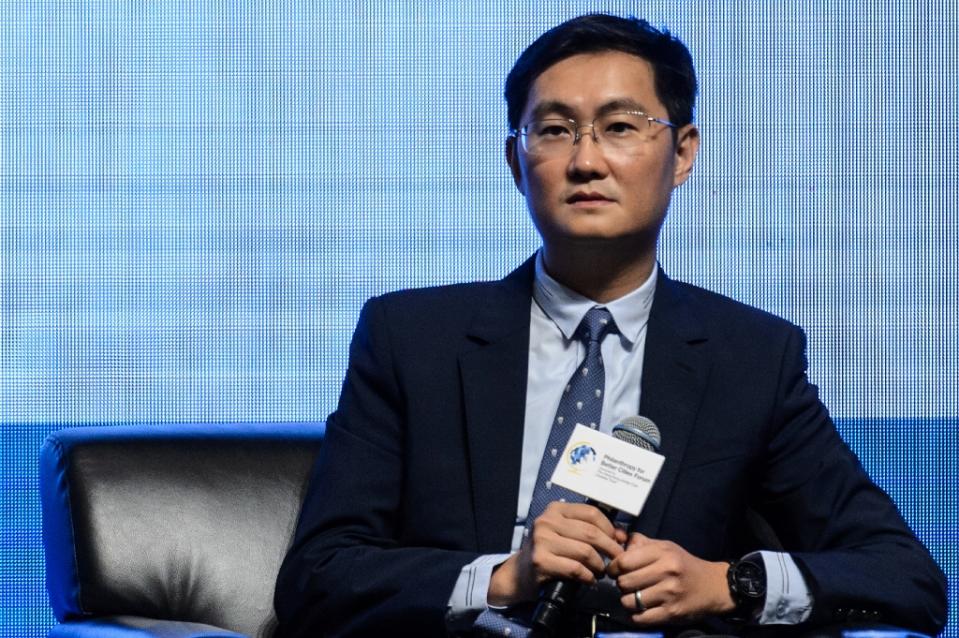Why Tencent has struggled in 2018
Tencent’s third-quarter earnings report last week provided momentary optimism and a brief stock pop, thanks to a 30% rise in profit in the quarter, shattering analyst expectations.
But the Tencent story in 2018 is still a gloomy one. That’s largely because the Chinese government, which is undergoing a massive restructuring, has halted approvals for new video games. The freeze is brutal for Tencent, and Tencent president Martin Lau said on the earnings call that he has no real update to give on that front, which did not inspire much confidence.
Tencent’s revenue in the third quarter grew 24%, its slowest quarterly revenue growth in more than three years. Tencent shares are down 31% this year. (That’s a big hit to the wealth of CEO “Pony” Ma Huateng, the richest man in China.) And this all comes as Tencent is planning a $2 billion U.S. IPO of its Tencent Music business.

Of course, all the major Chinese software giants have had a bad year amidst the trade war and China’s economic slowdown.
But Tencent stock (TCEHY) has taken a bigger beating this year than its peers Alibaba (BABA) and Baidu (BIDU); only JD.com (JD) has fared worse. (JD last quarter saw its slowest quarterly revenue growth since 2014.) Tencent’s market cap has now sunk below Alibaba’s.

It wasn’t so long ago that Tencent was typically mentioned in the same breath as Alibaba, the twin tech giants of China. Both companies operate vast internet businesses that include ecommerce, social media, music, and mobile gaming. But gaming is a far bigger part of Tencent’s business than Alibaba’s, and the majority of its profit source.
The Chinese government’s freeze on video game approvals leaves Tencent unable to monetize some of its most popular mobile games, Fortnite (made by Epic Games, which is 40% owned by Tencent) and PlayerUnknown’s Battlegrounds (PUBG, made by Bluehole, which is 10% owned by Tencent). Those games are free to play and are extremely popular, but without government approval, Tencent can’t offer in-game purchases.
The gaming approval freeze has even hurt Apple. On its fourth-quarter earnings call, Apple CEO Tim Cook said, “The App Store in China, we have seen a slowdown—or a moratorium, to be more accurate—on new game approvals. There is a new regulatory setup in China, and there things are not moving the way they were moving previously.”
And the situation doesn’t look likely to get better for a while.
“In the near term, Tencent may continue to face big challenges in gaming as the government appears likely to set up a cap on the number of total game titles published in the industry,” says Hans Chung, an analyst with Keybanc Capital Markets. “That would be a negative, as Tencent is the industry leader. That said, its advertising business is growing faster, particularly with its social ad business, and I believe its social platform has a bright potential of monetization in the future.”
Indeed, Tencent’s ad revenue rose 47% year over year, propelled by ads on its social platform WeChat, which boasts more than 1 billion users. “We think this accelerating ads growth should help partially alleviate market suspicions about Tencent’s ad potential,” Nomura wrote in a post-earnings note.
But Paul Triolo, an analyst at Eurasia Group, says the regulatory issues in gaming aren’t the only trouble spot at Tencent. “My sense is that the company is not capitalizing on its data sets, and lacks a strong A.I. strategy,” he says. “Alibaba is able to integrate data sets from all of its verticals, but Tencent has not figured out how to leverage all the WeChat data and generate revenue. It looks to me like Tencent does not have a long-term tech strategy to compete with the big players.”
Finally, Tencent has also spent big on investments. It bought $400 million worth of shares in the $4.2 billion IPO of Meituan Dianping in September, and last year it teamed with JD.com to invest $863 million in Vipshop, a strategic shot at Alibaba.
On the bright side for Tencent, analysts widely believe the government gaming freeze is only temporary. The question anxious investors all have: When will the freeze finally thaw?
—
Daniel Roberts covers tech at Yahoo Finance. Follow him on Twitter @readDanwrite.
Read more:
The world’s most valuable unicorn is a little-known Chinese payment company
ESPN scores in China with new Tencent deal
A Chinese fintech behemoth is getting ready to go public
Bitcoin was supposed to kill Western Union — that hasn’t happened
Circle CEO: We will soon compete with Venmo, Square, Robinhood and Coinbase
